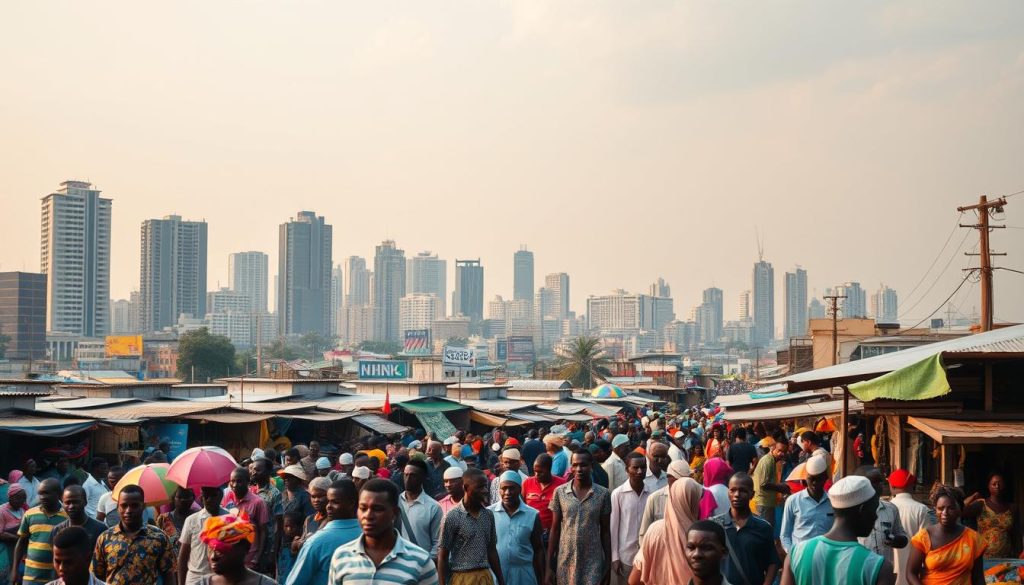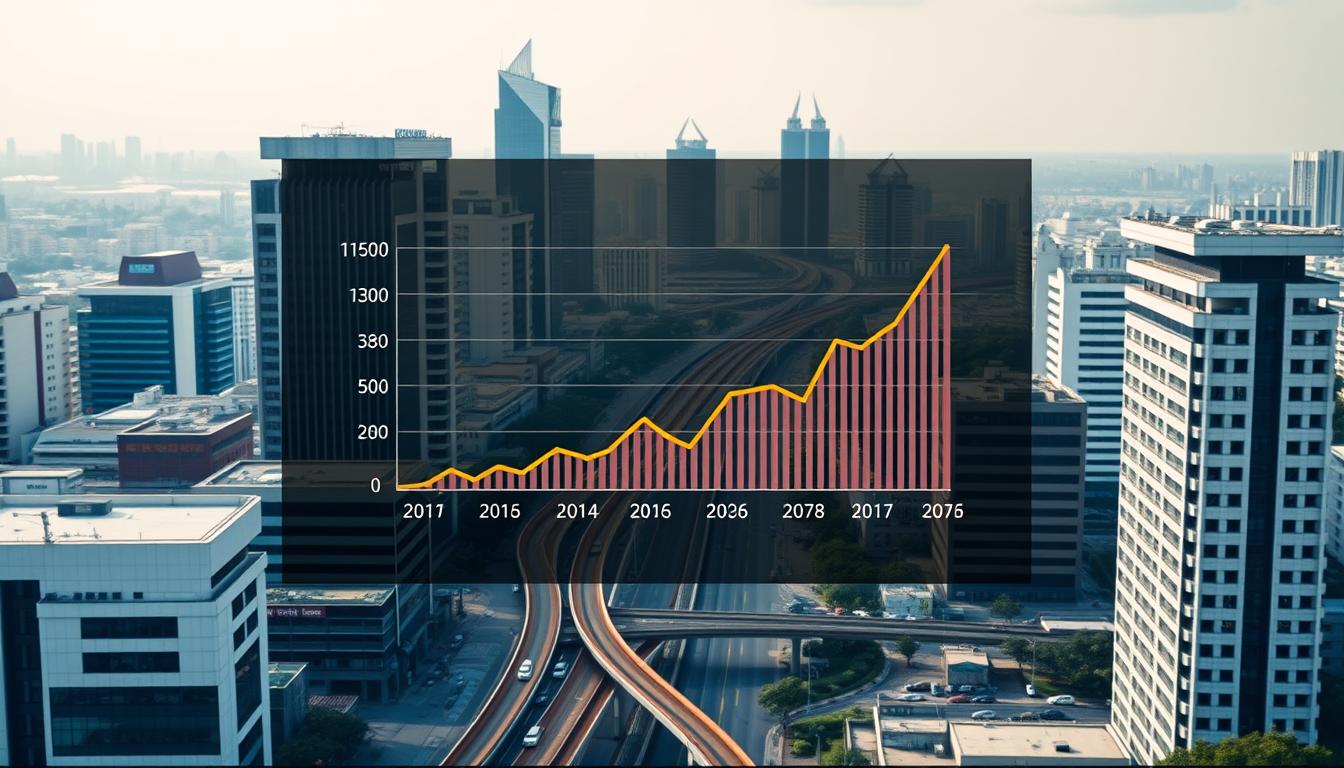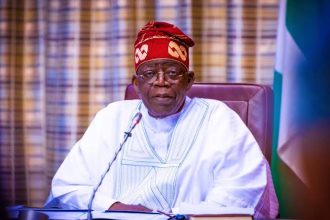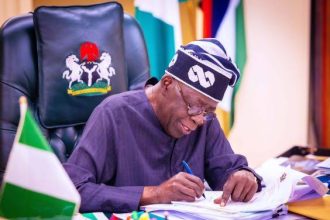Recent economic signs show that Nigeria’s inflation rate is falling. Experts predict a big drop in September 2025. This is due to better money policies and stable currency values.
Looking at the economy now, we see many reasons for this expected drop. We’ll dive into these reasons. This will give us a better understanding of nigeria’s inflation and its impact on the economy.
Key Takeaways
- Economic indicators point to a decline in inflation rate.
- Monetary policies are expected to play a critical role.
- Currency stabilization is a key factor.
- Forecasts suggest easing in September 2025.
- Improved economic conditions are anticipated.
Current Economic Landscape in Nigeria
To understand Nigeria’s economy, we must look at key indicators. These metrics help us see the country’s financial health and its future.
Key Economic Indicators as of 2025
Nigeria’s economy is shaped by several important factors. These include GDP growth, unemployment rates, and inflation trends.
GDP Growth and Performance Metrics
Nigeria’s GDP has shown strong growth, reaching 3.2% in 2024. This growth is mainly thanks to the services sector. Looking ahead to 2025, we predict more growth, but at a slower pace. This is due to investments in infrastructure and a better business climate.
Unemployment and Poverty Rates
Despite GDP growth, unemployment is a big issue, with a rate of 23.1% in early 2025. Poverty also affects many people. To tackle these problems, there are efforts to create more jobs and improve social welfare.
Recent Inflation Trends in Nigeria
Inflation has been a major worry in Nigeria, with ups and downs in the past year.
Month-by-Month Inflation Data (2024-2025)
Looking at inflation data from 2024 to 2025, we see a peak of 29.9% in January 2025. By June 2025, inflation drops to 27.4%. This suggests inflation might be easing.
Consumer Price Index Analysis
The Consumer Price Index (CPI) shows food inflation is a big factor in overall inflation. Prices for staple foods have gone up a lot. But, recent data shows a slowdown in food price increases, helping to lower inflation overall.
Nigeria’s Inflation to Ease Further in September 2025
Recent data shows Nigeria’s inflation will keep going down into September 2025. This is based on many economic signs and models. They all point to a good outlook for Nigeria’s inflation rate.
Projected Inflation Rates for Q3 2025
The third quarter of 2025 is expected to see a big drop in Nigeria’s inflation rate. This forecast comes from advanced statistical models and year-over-year comparisons.
Statistical Forecasts and Models
Our analysis with statistical forecasts and models shows inflation going down. These models look at many economic factors. They include changes in monetary policy and how much food is produced.
Year-over-Year Comparison
A year-over-year look shows Nigeria’s inflation rate has been slowly falling. This trend is likely to keep going, with a big drop in September 2025.
Central Bank of Nigeria’s Official Forecast
The Central Bank of Nigeria has shared its official forecast, matching our predictions. The Monetary Policy Committee’s statements and the Central Bank Governor’s outlook give us valuable insights. They show inflation is expected to ease.
Monetary Policy Committee Statements
The Monetary Policy Committee has shown cautious optimism about Nigeria’s inflation path. Their policies aim to support this positive trend.
Central Bank Governor’s Economic Outlook
The Central Bank Governor’s economic outlook backs up the positive inflation rate projections. The Governor’s analysis stresses the need for ongoing monetary policy adjustments.
In summary, experts and the Central Bank of Nigeria agree that inflation will ease more in September 2025. This is based on strong data and forecasts. It sets a solid base for the expected drop in inflation rates.
Driving Factors Behind the Expected Inflation Decline
Nigeria’s inflation rate is expected to drop in September 2025. Several key factors are driving this change. Let’s look at what’s behind this trend.
Monetary Policy Adjustments
The Central Bank of Nigeria has made changes to fight inflation.
Interest Rate Decisions and Impact
Recent interest rate hikes aim to slow down inflation. They make borrowing more costly.
Liquidity Management Strategies
Good liquidity management has helped reduce money in circulation. This has eased inflation.
Improved Agricultural Output
Boosts in agricultural production are key to the expected inflation drop.
Food Price Stabilization
More food from farms has helped keep food prices steady. This has lowered the overall inflation rate.
Agricultural Sector Investments
Investments in farming have made it more productive. This has led to lower food prices.
Stabilization of Foreign Exchange Markets
The stability of foreign exchange markets is also important in fighting inflation.
Naira Performance Against Major Currencies
The Naira has stayed strong against major currencies. This has lowered import costs and helped reduce inflation.
Foreign Reserve Management
Good management of foreign reserves has supported the Naira. It has helped keep the foreign exchange market stable.
| Factor | Impact on Inflation |
|---|---|
| Monetary Policy Adjustments | Reduced money supply, curbed inflationary pressures |
| Improved Agricultural Output | Stabilized food prices, reduced overall inflation |
| Stabilization of Foreign Exchange Markets | Reduced import costs, supported Naira stability |
Government Interventions Contributing to Inflation Control
The Nigerian government has launched several key efforts to fight inflation. These efforts are expected to greatly impact the country’s economy by September 2025. They focus on both money and spending in the economy.
Fiscal Policy Measures
The government’s fiscal policies are key in the battle against inflation. They focus on budgeting, public spending, tax changes, and making more money.
Budget Allocation and Public Spending
Good budgeting and spending are essential. They ensure money goes to areas that boost growth and control inflation. The government is focusing on key infrastructure and social programs.
Tax Reforms and Revenue Generation
Tax changes are also vital. By making the tax system better and collecting more taxes, the government aims to cut the deficit. This helps fight inflation.
Infrastructure Development Impact
Infrastructure development is also key in controlling inflation. Better transportation, logistics, and energy reforms are positively affecting the economy.
Transportation and Logistics Improvements
Improvements in Nigeria’s transport and logistics are cutting costs. This helps reduce inflation for businesses and people.
Energy Sector Reforms
Energy sector reforms are making energy supply more reliable and efficient. This is important for economic stability and growth.
These government actions are expected to help control inflation in Nigeria by September 2025. By tackling fiscal policy and infrastructure, the government is taking a broad approach to economic stability.
Impact of Global Economic Trends on Nigeria’s Inflation
Global economic trends greatly affect Nigeria’s inflation. They influence oil prices and supply chain dynamics. Nigeria’s economy is closely linked to global markets. So, changes in international oil prices and better global supply chains can change Nigeria’s inflation rates.
International Oil Price Fluctuations
Changes in international oil prices are key to Nigeria’s inflation. Nigeria, being a major oil producer, feels the impact of global oil price changes.
OPEC+ Decisions and Nigeria’s Oil Production
OPEC+ decisions affect Nigeria’s oil production and income. When OPEC+ cuts production, Nigeria must follow its quota. This can lower Nigeria’s oil output and impact government income.
Petroleum Product Pricing
Petroleum product pricing is also influenced by global oil price changes. As global oil prices go up or down, Nigeria adjusts its petroleum product prices. This affects inflation.
Global Supply Chain Improvements
Improvements in global supply chains also shape Nigeria’s inflation. Better supply chains mean lower costs for imported goods. This can help lower inflation.
Post-Pandemic Trade Recovery
Trade has seen big improvements after the pandemic. As trade recovers, Nigeria gets more stable and efficient supply chains. This can ease inflationary pressures.
International Trade Agreements and Benefits
International trade agreements help Nigeria’s trade. They offer benefits like lower tariffs and more market access. These agreements can lead to lower prices for goods and services. This supports easing inflation.
Sectoral Analysis: Winners and Losers in the Easing Inflation Environment
Nigeria’s inflation rate is expected to drop in September 2025. This change will affect different parts of the economy in various ways. Some sectors will see opportunities, while others will face challenges.

Banking and Finance Sector Outlook
The banking and finance sector is set to gain from the lower inflation. Credit growth is likely to increase as borrowing costs fall.
Credit Growth and Lending Rates
With inflation going down, lending rates might drop too. This makes credit easier for people and businesses to get. It could boost loan demand, mainly in consumer credit.
Banking Sector Profitability
Banks might see their profits rise with more lending and possibly higher interest margins. But, this depends on their ability to manage risks and keep their assets in good shape.
Manufacturing Industry Projections
The manufacturing sector is also set to benefit from lower inflation. Reduced production costs could mean more output.
Production Costs and Output Levels
Lower inflation means cheaper raw materials and inputs. This could lead to more production and better competitiveness.
Capacity Utilization Improvements
With lower costs, manufacturers might use their capacity better. This could make operations more efficient and possibly more profitable.
Consumer Goods and Retail Market Response
The consumer goods and retail sector is expected to see positive effects from lower inflation. Purchasing power is expected to recover as inflation drops.
Purchasing Power Recovery
With inflation down, people will have more money to spend. This could lead to higher demand for consumer goods.
Retail Sales Forecasts
Retail sales are expected to rise as people spend more. This could mean more sales for retailers.
Implications for US-Nigeria Economic Relations
Nigeria’s inflation is expected to drop in September 2025. This could change how the US and Nigeria work together economically. It’s important to think about how this might affect their economic ties.
US Investment Opportunities in Nigeria
With Nigeria’s inflation easing, US investors might see new chances. A stable economy makes Nigeria more appealing for foreign money.
Sectors Attracting US Capital
Several areas in Nigeria could draw US investment, including:
- Renewable energy
- Agricultural technology
- Infrastructure development
Risk Assessment for US Investors
Even with the drop in inflation, US investors should watch out for risks. These include:
- Currency changes
- Regulatory shifts
- Security issues
Trade Relations and Export-Import Dynamics
The inflation drop might also change trade between the US and Nigeria. This could alter how they trade with each other.
US Exports to Nigeria
As Nigeria’s economy stabilizes, US exports there might grow. This could be true for:
- Manufactured goods
- Technology products
Nigerian Exports to US Markets
On the other hand, Nigeria’s exports to the US could also see changes. This might affect:
- Oil and petroleum products
- Agricultural goods
As the economic scene shifts, it’s key for US and Nigerian businesses to grasp these changes. This will help them make the most of new opportunities.
Expert Opinions on Nigeria’s Economic Recovery Path
Experts have mixed views on Nigeria’s economic recovery. They consider many factors that affect inflation. Domestic and international experts see Nigeria’s economy as complex.
Domestic Economic Analysts’ Perspectives
Domestic analysts are hopeful about Nigeria’s economy. They see chances for lower inflation due to better farming and stable currency.
Nigerian Economic Summit Group Forecasts
The Nigerian Economic Summit Group is optimistic. They believe growth in key sectors could lead to a stable economy. The right policies are key.
Academic and Research Institutions’ Analyses
Academic groups offer insights on Nigeria’s economy. They stress the role of better infrastructure and smart fiscal policies in growth.
International Financial Institutions’ Assessments
Global bodies like the IMF and World Bank have weighed in. They say Nigeria needs to keep tweaking its monetary policy to fight inflation.
IMF and World Bank Projections
The IMF and World Bank predict Nigeria’s economy will grow. They stress the need for a stable macroeconomic environment.
Rating Agencies’ Outlook on Nigeria
Rating agencies have shared their views on Nigeria. They highlight both the challenges and opportunities. Their opinions are vital for investors.

Potential Risks to the Inflation Easing Forecast
Looking ahead to September 2025, Nigeria’s inflation forecast faces several risks. These risks include political stability concerns and external economic shocks. They can affect the country’s economic stability.
Political Stability Concerns
Political stability is key to economic stability. Any political disruptions can harm Nigeria’s inflation trends.
Upcoming Political Events and Their Impact
Nigeria’s political events could impact inflation forecasts. Elections and rallies might cause social unrest, affecting the economy.
Policy Continuity Challenges
Changes in government or policies can create uncertainty. This uncertainty can disrupt the inflation easing trend. Keeping policies consistent is vital for investor confidence and economic stability.
External Economic Shocks
Nigeria’s economy is influenced by global trends. External shocks can significantly affect the country’s inflation forecast.
Global Recession Risks
A global recession could reduce demand for Nigeria’s exports. This could slow economic growth and impact inflation.
Climate Change and Environmental Factors
Climate events like droughts or floods can affect agriculture. This can lead to higher food prices. Nigeria’s economy, heavily reliant on agriculture, is vulnerable to these environmental factors.
| Risk Factor | Potential Impact | Mitigation Strategy |
|---|---|---|
| Political Unrest | Increased inflation due to supply chain disruptions | Enhanced security measures and dialogue |
| Global Recession | Reduced export demand, economic slowdown | Diversification of exports, economic stimulus packages |
| Climate Change | Food price inflation due to agricultural disruptions | Investment in climate-resilient agriculture, irrigation systems |
Looking Beyond 2025: Nigeria’s Long-term Economic Outlook
Nigeria’s economic future looks bright, with inflation expected to ease. The Central Bank of Nigeria’s smart policies will keep the economy stable. This stability is key for growth.
The monetary policy in Nigeria will keep changing. It will aim to reduce risks and grab growth chances. With lower inflation, Nigeria will draw more foreign investment. This will boost its economy and development.
Our study shows Nigeria’s long-term economy will depend on good governance. The government’s focus on budget control, building infrastructure, and reforming sectors is vital. These efforts will create a better business climate, leading to more growth and wealth in Nigeria.
Lower inflation will also help Nigerians, making their money go further. This means better living conditions for everyone. Nigeria’s economic future looks bright, with chances for steady growth and progress.













https://t.me/battle_games_com_bot/start?startapp=frndId1891914791